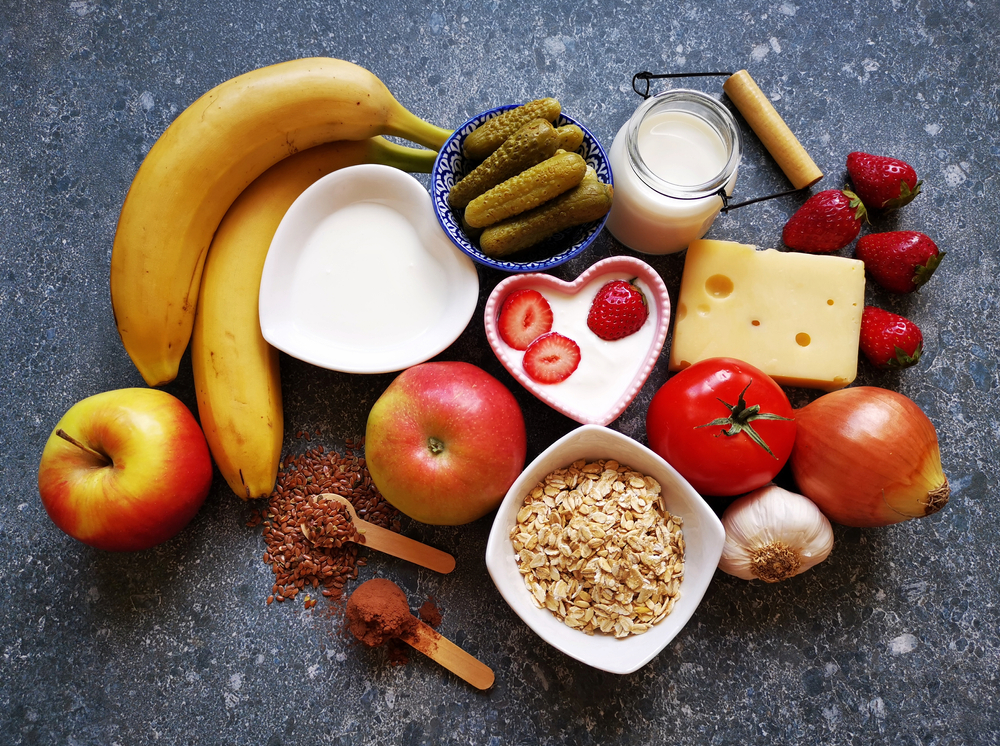Introduction:
In the fascinating world of gut health, terms like prebiotics and probiotics often surface, but understanding their roles can be akin to navigating a complex digestive maze. In this exploration, we aim to demystify the difference between prebiotics and probiotics, shedding light on how these two components collaborate to create a symphony of well-being within our digestive systems.

Defining Prebiotics and Probiotics:
1. Probiotics – The Friendly Bacteria: Probiotics are live microorganisms, primarily bacteria and yeast, that confer health benefits when consumed in adequate amounts. These beneficial microbes contribute to the balance of the gut microbiota, supporting digestion, nutrient absorption, and overall immune function.
2. Prebiotics – Nourishing the Microbiome: Prebiotics, on the other hand, are non-digestible fibers that serve as food for the beneficial bacteria in the gut. They create an environment that fosters the growth and activity of these probiotics, promoting a flourishing and diverse microbiome.
Working in Harmony:
3. Symbiotic Relationship: Probiotics and prebiotics often work synergistically, creating a symbiotic relationship within the digestive system. While probiotics introduce beneficial bacteria, prebiotics provide the sustenance these microorganisms need to thrive.
4. Colonizing the Gut: Probiotics can be introduced to the gut through fermented foods like yogurt, kefir, and sauerkraut, as well as through supplements. Prebiotics, found in foods like garlic, onions, bananas, and whole grains, serve as the nourishing foundation that helps probiotics establish and flourish.
Health Benefits:
5. Digestive Harmony: Probiotics contribute to the maintenance of a balanced gut microbiome, aiding in the breakdown of food and absorption of nutrients. This, in turn, supports digestive health and can alleviate conditions such as irritable bowel syndrome (IBS) and constipation.
6. Immune Support: A well-balanced gut microbiome is closely linked to a robust immune system. Probiotics play a role in immune modulation, helping to defend against infections and promote overall immune resilience.
7. Nutrient Absorption: Both probiotics and prebiotics contribute to the absorption of essential nutrients, ensuring that the body optimally utilizes the vitamins and minerals present in the diet.
Incorporating Probiotics and Prebiotics:
8. Dietary Choices: Including probiotic-rich foods such as yogurt, kimchi, and miso, along with prebiotic-rich foods like asparagus, leeks, and oats, can contribute to a balanced gut microbiome.
9. Supplements: For those looking to enhance their gut health, probiotic and prebiotic supplements are available. However, it’s advisable to consult with a healthcare professional before incorporating supplements into your routine.
Conclusion:
In the intricate dance of digestion, prebiotics and probiotics play integral roles, weaving a tapestry of gut health that extends beyond the digestive system. By understanding and consciously incorporating these elements into our diets, we can cultivate a resilient and thriving microbiome, fostering not only digestive well-being but also supporting overall health and vitality.
